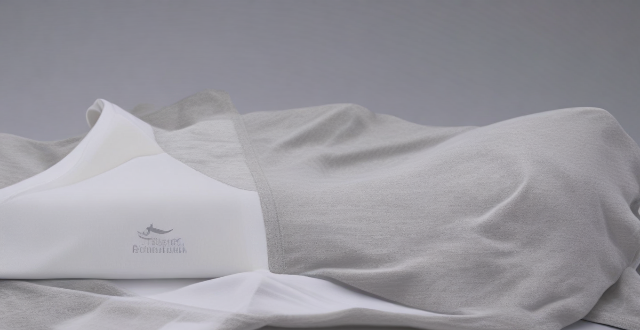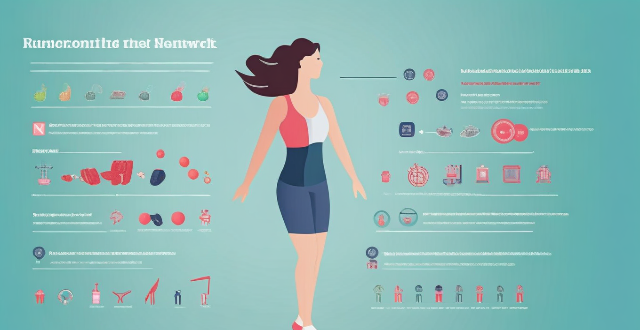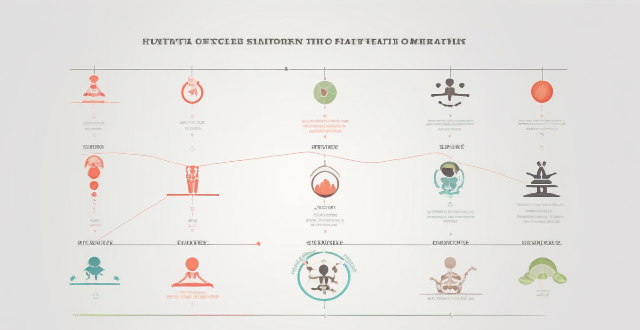Muscle Recovery

Can sports supplements help with muscle recovery after workouts ?
Can Sports Supplements Help with Muscle Recovery After Workouts? Physical exercise and workouts are essential for maintaining a healthy lifestyle, but they can also lead to muscle fatigue and soreness. Many athletes and fitness enthusiasts turn to sports supplements to aid in muscle recovery after workouts. But do these supplements really work? Let's explore the topic in detail. What are Sports Supplements? Sports supplements are dietary products designed to enhance athletic performance, improve physical health, and support recovery from exercise. They come in various forms, including powders, pills, and liquids, and can be consumed before, during, or after workouts. Types of Sports Supplements - Protein Powders: Help in muscle repair and growth. - Creatine: Boosts energy production in muscles. - Branched-Chain Amino Acids (BCAAs): Support muscle building and recovery. - Glutamine: Aids in muscle recovery and immune function. - Omega-3 Fatty Acids: Reduce inflammation and promote heart health. - Multivitamins/Minerals: Support overall health and wellness. How Do Sports Supplements Help with Muscle Recovery? - Protein Powders: Consuming protein powders after a workout can help replenish depleted amino acids, leading to faster recovery times. - Creatine: Increases the availability of phosphocreatine, which helps regenerate ATP more quickly during high-intensity exercises, reducing muscle fatigue and aiding in recovery. - BCAAs: Consuming BCAA supplements before or during workouts can reduce muscle damage and speed up recovery processes. - Glutamine: Supports muscle recovery by helping maintain cellular volume and preventing muscle breakdown. It also supports immune function, which is important for overall health and recovery. - Omega-3 Fatty Acids: Have anti-inflammatory properties that can help reduce muscle soreness and stiffness after workouts. They also support heart health, which is crucial for athletes who engage in cardiovascular exercises. - Multivitamins/Minerals: While not directly related to muscle recovery, consuming multivitamins or minerals can support overall health and wellness, which indirectly aids in recovery processes. Are Sports Supplements Safe? While sports supplements can be beneficial for some individuals, it's important to note that they are not regulated by the Food and Drug Administration (FDA). This means that their safety and effectiveness may vary between brands and products. It's always best to consult with a healthcare professional before starting any supplement regimen. Additionally, relying solely on supplements without proper nutrition and rest can be counterproductive. A balanced diet, adequate sleep, and proper hydration are still key components of effective muscle recovery.

How does sleep deprivation affect muscle recovery after workouts ?
Sleep is crucial for muscle recovery after workouts, as it allows the body to repair and rebuild damaged muscle tissue. Sleep deprivation reduces growth hormone production and protein synthesis, leading to inefficient muscle recovery. Strategies for improving sleep quality include establishing a consistent sleep schedule, creating a relaxing bedtime routine, avoiding screens before bed, getting plenty of exercise, and creating a comfortable sleeping environment. By prioritizing sleep, you can improve muscle recovery and overall health.

How do sports nutrition supplements affect muscle recovery after a workout ?
Sports nutrition supplements can significantly support muscle recovery post-workout by providing essential nutrients. Protein supplements like whey and casein replenish amino acids, while carbohydrate supplements such as BCAAs and beta-alanine reduce soreness and fatigue. Other nutrients, including creatine, glutamine, and vitamins/minerals, further enhance recovery. A structured supplementation routine, tailored to individual needs, can optimize muscle recovery and athletic performance.

What kind of foods should I eat to aid in muscle recovery
Eating a balanced diet that includes carbohydrates, protein, healthy fats, water, and vitamins and minerals is essential for muscle recovery after exercise. Complex carbohydrates provide energy for muscles during recovery, while protein helps repair and grow them. Healthy fats support overall health and reduce inflammation. Drinking enough water flushes out toxins and maintains a healthy fluid balance in the muscles. Vitamins and minerals, such as vitamin C, vitamin D, and iron, are also important for muscle function and recovery.

What are the best post-workout recovery techniques
The text discusses the importance of post-workout recovery for achieving optimal physical performance and preventing injuries. The author recommends several techniques including stretching, hydration, protein intake, foam rolling, massage therapy, active recovery, and sleep. Stretching improves flexibility and reduces muscle soreness, while hydration replaces lost fluids during exercise. Protein intake helps repair and rebuild muscles, foam rolling relieves muscle tension, massage therapy reduces inflammation, active recovery promotes circulation, and sleep allows the body to repair and rebuild itself. Incorporating these techniques into a routine can help improve performance and prevent injuries.

What are the best exercises for sports recovery ?
The text discusses the importance of sports recovery and suggests various exercises to aid in this process. The exercises include stretching, foam rolling, light cardiovascular exercise, and yoga. Stretching helps increase blood flow, reduce muscle tension, and improve flexibility. Foam rolling relieves muscle tightness and soreness by applying pressure to specific areas of the body. Light cardiovascular exercise increases blood flow and promotes recovery. Yoga improves flexibility, reduces stress, and promotes relaxation while also improving balance and stability. The author suggests several specific exercises for each category to help athletes recover from their workouts or competitions.

How does stretching help with recovery after a workout ?
Stretching is crucial for recovery after a workout. It improves blood circulation, reduces muscle soreness and stiffness, enhances flexibility, promotes better range of motion, prevents injury, and reduces stress. Incorporating stretching into your post-workout routine can greatly enhance your recovery process.

What is the relationship between sleep and recovery in high-level sports performance ?
Sleep is a vital component of recovery for high-level athletes, playing a significant role in muscle repair, energy restoration, immune function, cognitive function, and emotional well-being. Optimal sleep can lead to improved performance, reduced injury risk, enhanced learning and adaptation, increased motivation and focus, and better weight management. To maximize the benefits of sleep for recovery, athletes should establish good sleep habits such as maintaining a consistent sleep schedule, creating a conducive sleep environment, limiting caffeine and alcohol intake, practicing relaxation techniques, and avoiding naps or keeping them short and early in the day.

Are there any specific stretches or warm-up routines that aid in sports recovery ?
Recovery is an essential aspect of sports and physical activities. Stretching and warm-up routines can aid in reducing the risk of injuries, improving performance, and enhancing overall well-being. Specific stretches such as hamstring, calf, and quadriceps stretches can increase flexibility, reduce muscle tension, and promote blood flow. Warm-up routines like cardiovascular exercises, resistance band exercises, and foam rolling can activate muscles, improve circulation, and reduce tightness. Incorporating these routines into your recovery process can help you achieve better results and prevent injuries.

How much protein do I need for muscle recovery ?
Protein is vital for muscle recovery, especially after intense workouts. Sedentary adults need 0.8g/kg, while athletes require more. Timing and quality of protein intake matter. Tips include dietary variety, supplementation if needed, meal planning, and monitoring intake.

How do I prevent muscle soreness after a long run ?
To prevent muscle soreness after a long run, you should warm up properly, stretch your muscles, drink plenty of water, eat a balanced diet, and rest between workouts. Following these tips can help reduce the risk of injury and improve performance in future runs.

How do sports monitoring systems analyze muscle activity and fatigue ?
Sports monitoring systems analyze muscle activity and fatigue by employing various technologies and methodologies, including: 1. Electromyography (EMG) to measure electrical muscle activity and detect fatigue indicators. 2. Heart rate monitoring to track intensity, recovery, and heart rate variability (HRV). 3. Accelerometry to track motion patterns and assess fatigue through changes in movement quality. 4. Force plates and pressure mats for measuring ground reaction forces and load distribution. 5. Blood lactate testing as a metabolic indicator of anaerobic metabolism and fatigue. 6. Perception-based scales like Ratings of Perceived Exertion (RPE) for subjective feedback on exertion levels. 7. Sleep tracking to monitor sleep duration, quality, and rest disruptions. 8. Environmental monitoring to account for external conditions affecting performance and fatigue. These systems provide valuable insights into an athlete's performance, enabling coaches and athletes to adjust training regimens, prevent overtraining, and enhance overall sports performance.

Can stretching after exercise prevent muscle soreness ?
Stretching after exercise can help reduce muscle soreness and improve flexibility, but it is important to wait for enough time, choose appropriate stretches, be mindful of pain, and use proper technique.

How important is rest and recovery in skill enhancement ?
The text discusses the importance of rest and recovery in the process of skill enhancement. It highlights the cognitive and physical benefits of taking breaks, such as improved mental clarity, memory consolidation, muscle recovery, and injury prevention. The practical implications include avoiding burnout, enhancing performance, and strategies for incorporating rest into practice schedules. Overall, the text emphasizes that rest is a crucial component of long-term skill development and should be given equal consideration alongside deliberate practice and training regimens.

What is the importance of recovery in sports training ?
Recovery is a crucial aspect of sports training that often gets overlooked. Athletes and coaches need to understand the importance of recovery and make it an integral part of their training programs. Recovery refers to the process of restoring the body's energy reserves and repairing damaged tissues after physical activity. It is essential for athletes because it allows them to prevent overtraining, promote tissue repair and growth, and enhance mental well-being. There are several effective recovery strategies that athletes can incorporate into their training programs, including active recovery, passive recovery, hydration and nutrition, and sleep. By incorporating these strategies into their training programs, athletes can maximize their recovery benefits and improve their performance on the field or court.

What role does nutrition play in sports injury recovery ?
Nutrition plays a crucial role in sports injury recovery by providing the body with essential nutrients for tissue repair and growth. Protein, vitamins, minerals, and fluids are all important for healing, and proper nutrition can help speed up the process. In addition to nutrition, other factors such as rest, stress management, and physical therapy also play a role in sports injury recovery.

How do sports supplements work ?
Sports supplements are designed to enhance athletic performance, improve recovery, and support overall health by providing essential nutrients. They work in various ways: 1. **Energy Production**: Carbohydrates replenish glycogen stores, delay fatigue, and maintain performance levels; Creatine increases short-term power and strength. 2. **Muscle Growth and Repair**: Protein supports muscle recovery and building; BCAAs reduce muscle soreness and improve endurance. 3. **Hydration and Electrolyte Balance**: Electrolytes prevent dehydration, cramping, and maintain muscle function. 4. **Joint Health and Recovery**: Glucosamine and Chondroitin may reduce joint pain; Omega-3 fatty acids reduce inflammation. 5. **Performance Enhancement**: Caffeine improves endurance and focus; Beta-alanine delays muscle fatigue. Supplements should complement a balanced diet and their use should be guided by healthcare professionals.

What is the role of stretching in physical recovery and injury prevention ?
Stretching is an essential component of any physical activity routine, including sports, exercise, and daily activities. It helps to improve flexibility, range of motion, and overall mobility. In this article, we will explore the role of stretching in physical recovery and injury prevention. The benefits of stretching include improved range of motion, improved joint mobility, and improved post-exercise recovery. By increasing flexibility and range of motion, stretching can help reduce the risk of strain injuries such as hamstring pulls or calf strains. Stretching can also help to reduce the risk of overuse injuries, which are common in sports that involve repetitive movements or high levels of exertion. Additionally, stretching can help improve balance and coordination, reducing the risk of falls and other accidents. To stretch properly, it's important to warm up before exercise with some light stretching to prepare your muscles for the workout and reduce the risk of injury. After finishing your exercise, stretch again to speed up recovery time and reduce muscle soreness. You should hold each stretch for at least 30 seconds and go through all major muscle groups. When you stretch, use proper techniques to avoid putting unnecessary stress on your muscles or joints. Stretch slowly and gently, avoiding any sudden or forceful movements.

What should I eat after a workout to build muscle
After a workout, it is important to provide the body with nutrients for muscle repair and growth. Protein-rich foods like chicken breast and Greek yogurt are essential for muscle growth. Complex carbohydrates like sweet potatoes provide sustained energy. Healthy fats from sources such as avocados and nuts help absorb vitamins. Staying hydrated with water is crucial for muscle function. A balanced diet with fruits, vegetables, and fiber supports long-term muscle health.

Can physical therapy help with sports injury recovery ?
Physical therapy is beneficial for sports injury recovery, addressPhysical therapy is beneficial for sports injury recovery, address restoration, injury prevention, and addressing pain management, function restoration, injury prevention, and supporting a safe return to activity. It involves assessment, diagnosis, manual therapy, range of motion exercises, strengthening exercises, stretching, balance training, functional training, gradual increase in activity, and education on injury prevention and home exercise programs.

How can I improve my flexibility and range of motion during sports recovery ?
Improving Flexibility and Range of Motion during Sports Recovery: - Incorporate dynamic and static stretching routines before and after physical activities. - Use foam rolling for self-myofascial release to aid recovery and increase range of motion. - Include yoga or Pilates in your routine to improve flexibility and balance through mindful movements and breath control. - Maintain proper nutrition by staying hydrated, consuming adequate protein, and eating anti-inflammatory foods. - Ensure adequate rest through sleep and active rest days. - Practice consistency in these strategies and track progress to monitor improvements over time. - Consult with professionals like physical therapists and sports trainers for personalized guidance and injury prevention.

What is the significance of compression garments in sports attire ?
Compression garments are tight-fitting clothes designed to provide a snug fit and exert pressure on the body. These garments offer numerous benefits that can enhance performance, recovery, and overall well-being in sports attire. Some of the key benefits include improved blood circulation, enhanced recovery, temperature regulation, support and stability, and psychological advantages. By promoting better blood flow, compression garments help to deliver more oxygen to working muscles, remove metabolic waste, reduce muscle vibration, and minimize inflammation and swelling after exercise. They also regulate temperature in both hot and cold environments, provide joint and muscle support, and boost confidence and mental preparation for athletes. Incorporating compression garments into sports attire can optimize performance and recovery, making them a valuable addition for athletes across various disciplines.

Can I drink alcohol after a vigorous exercise routine
Drinking alcohol after a vigorous exercise routine is possible, but it's not recommended due to potential negative effects on hydration, recovery, and nutrition. It's best to prioritize your health by choosing healthy foods and drinks that provide the necessary nutrients for optimal recovery.

How important is rest and recovery in a sports training plan ?
This article emphasizes the importance of rest and recovery in a sports training plan. It highlights that incorporating rest and recovery into a routine can prevent overtraining, enhance performance, and reduce the risk of injury. The article provides tips on how to incorporate rest and recovery into a training plan, such as scheduling regular rest days, using active recovery techniques, getting enough sleep, and staying hydrated. Overall, the article stresses the significance of giving the body time to heal and repair itself for optimal performance levels.

Are there any specific training methods that celebrities use for muscle building and fat loss ?
Celebrities use a variety of training methods and nutrition plans to achieve their desired physique, including High-Intensity Interval Training (HIIT), weightlifting, cardiovascular exercise, Pilates and yoga, functional training, and strict nutrition plans. These methods are designed to burn fat, build muscle, improve flexibility and balance, and support overall fitness and mobility. However, individual results may vary depending on various factors.

What role does muscle strength training play in preventing chronic diseases ?
Muscle strength training can help prevent chronic diseases such as heart disease, stroke, type 2 diabetes, and some types of cancer. It also has many benefits for physical and mental health, including improved cardiovascular health, weight management, better bone health, reduced risk of type 2 diabetes, enhanced mental health, increased self-esteem, improved physical function, lowered blood pressure, and cancer prevention. To get started with muscle strength training, it is important to start low and slow, mix up your routine, rest enough, stay hydrated, eat right, and get enough sleep. With dedication and consistency, you can achieve great results!

What role does technology play in modern disaster response and recovery ?
Technology plays a vital role in modern disaster response and recovery by enhancing early warning systems, improving communication and coordination, and enabling efficient data collection and analysis.

What are some effective methods for reducing muscle soreness after a workout ?
Effective Methods for Reducing Muscle Soreness After a Workout includes proper warm-up and cool down, staying hydrated and consuming proper nutrition, getting adequate rest and sleep, foam rolling and massage, and heat and cold therapy.